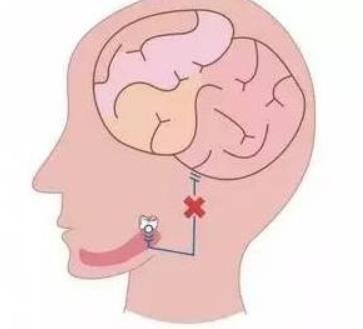News claimed that a Swedish scientist found that "people with sound teeth have a significantly better memory than those who have had their teeth extracted". Is there any truth to this claim or not?

We can indeed go back to a Swedish study published in 2013, but the original study did not conclude that "tooth extraction affects memory" at all. Although the researchers found an association between the number of teeth and certain memory abilities in older adults, the current study has many limitations and cannot draw conclusive conclusions.
What did the researchers do?
This was a cross-sectional study in which researchers selected 273 middle-aged and older subjects between the ages of 55 and 80 and gave them a thorough oral examination, cognitive ability tests, and recorded their basic information and health status. The researchers focused on the number of "natural teeth" (excluding dentures) remaining in the mouths of these older adults and the relationship between this number and cognitive performance. Previous studies and animal studies have suggested that there may be some correlation between chewing ability and cognitive performance, so in this study, the researchers used the number of teeth as a measure of chewing ability.
It is worth noting that this study was conducted in older adults and its results cannot simply be extrapolated to other populations (e.g., younger people who had their wisdom teeth removed). Moreover, it studied the number of remaining teeth, and it is possible that those lost teeth in the subjects' mouths were extracted by the dentist, but it is equally possible that they fell out on their own, so its results cannot be interpreted as the effect of tooth extraction.
After correcting for a number of factors related to cognitive ability, such as age and education, the researchers found that the subjects showed some correlations between differences in performance on certain cognitive abilities and the number of teeth. The correlations were found for episodic and semantic memory, while working memory, visuospatial ability, and processing speed were not correlated with the number of teeth. This correlation was not very strong (after removing other factors, it explained about 3-4% of the difference in scores), but met the criteria for statistical significance.
What does the study tell us?
As mentioned above, the study was conducted on the cognitive profile of older adults and did not distinguish between tooth extraction and natural tooth loss, so its conclusion certainly cannot be written as "tooth extraction affects memory".
In the study, the number of teeth was indeed found to be associated with certain aspects of cognitive performance in older adults. However, the sample size of this study was relatively small and further research is needed to confirm the results. Moreover, the correlation between the number of teeth and memory performance was also weak, and it is not clear whether this difference is really clinically significant.
Even if the correlation does hold, such a study cannot prove what the real reason behind it is. For example, in the paper the researchers cite two hypotheses with completely opposite cause and effect: on the one hand, abnormal chewing ability may affect nutritional intake, and there are also animal studies suggesting that it may have an impact on neurological function; on the other hand, it is also possible that older people with reduced cognitive function have more difficulty maintaining oral hygiene, which in turn brings about oral disease and is what causes more tooth loss.
From the perspective of nutritional intake and quality of life, strong teeth are an important guarantee of a good quality of life, but its relationship with memory is still unclear, and the statement that "tooth extraction affects memory" is a misinterpretation of the study results. In many cases, removal of a problem tooth is a necessary treatment, so don't refuse treatment for fear of "memory impairment".